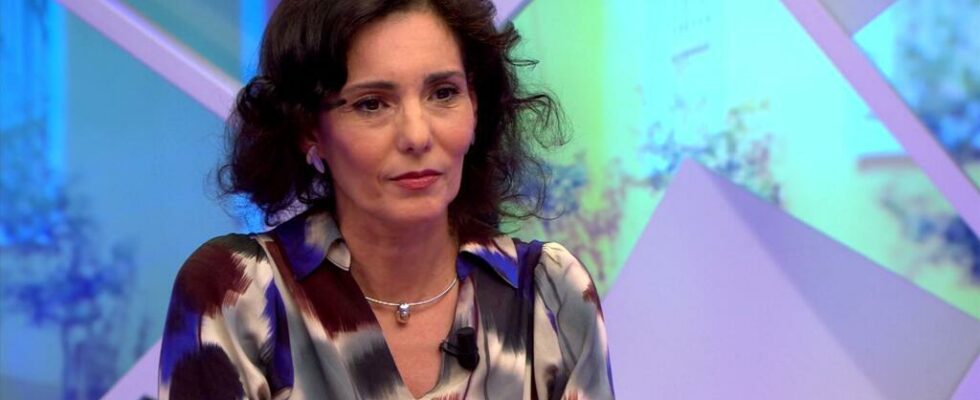This week, we welcome Hadja Lahbib, European Commissioner in charge of Anticipation, Crisis Management and Equality. Humanitarian aid provided to Ukraine and Gaza, protection of women’s rights in Syria and Afghanistan, or the fight against discrimination within the EU, the commissioner details the missions of her vast portfolio.
Commissioner Hadja Lahbib, in charge of European Union (EU) aid across the world, recently visited Ukraine where she announced the allocation of humanitarian aid of 140 million euros. While Ukrainians are experiencing a third winter in the middle of war, the commissioner confirms that “the situation is very serious”. “There Russia is in total violation of international law humanitarian“, she denounces. “Children, women and people with disabilities are the first victims. They are sometimes displaced kilometers from their homes, without electricity, without water, without shelter. Everything is destroyed.” The cold is a critical element for the population while energy infrastructure has been destroyed by Russian attacks. EU aid includes repurposing schools, setting up mobile clinics and distributing firewood. “A large part of our humanitarian aid consists of meeting basic needs,” explains Hadja Lahbib.
In the Middle East, the long-awaited truce gives people hope, but the humanitarian situation remains tragic. “Gaza is more than 80% demolished and the last functioning hospitals have been severely affected,” recalls the European Commissioner for Crisis Management. Humanitarian aid access to Gaza is extremely limited and controlled by Israel. While the Israeli Parliament adopted two bills banning the activities of the United Nations Agency for Palestinian Refugees (UNRWA) in the Gaza Strip, Hadja Lahbib believes that “their services provided at the educational, psychosocial, medical or health are enormous. “Nothing can replace UNRWA,” she adds. Regarding this conflict, she believes that “we are in full violation of international humanitarian law which requires not taking civilian populations hostage and not targeting infrastructure”.
In Syriathe EU could relax its sanctions against the country if the new authorities, made up of the radical Islamist group HTC, propose a policy particularly respectful of the diversity of religions and the freedom of women. “Today we expect an inclusive Syria. A Syria that allows all Syrians to exist with their differences,” recalls Hadja Lahbib. Asked whether the humanitarian aid provided by the EU could be called into question in the event of non-compliance with these conditions, she explains that this aid “is not political but impartial, neutral and unconditional”. “The humanitarian aid provided by the EU has never left Syria,” says the European Commissioner. However, she recalls that “the authorities will be judged on their actions in the coming weeks”.
The Twenty-Seven also released 150 million euros in emergency aid forAfghanistana country where 16 million Afghans out of 38 million require assistance. Some countries, including Franceare opposed to a form of development aid for Kabul because of the critical regression of women’s rights. While she understands these reluctances, the European Commissioner believes that what Afghan women are asking is the most important: “What they are asking us is to stay because they need our help. We will stay as long as we can work and send our humanitarian support to all women.”
Within the Union itself, countries can benefit from a civil protection mechanism in the event of a humanitarian crisis. “It is not because we are a rich country that we know how to deal with a disaster as vast as a cyclone or a pandemic. We cannot face disasters of this magnitude, alone in our corner,” recalls the Commissioner for Crisis Management. She explains that after the passage of the devastating cyclone in Mayotte“the contribution of several Member States made it possible to obtain more shelter for people who lost their homes”.
Hadja Lahbib is also responsible for equality between European citizens and in particular between men and women. “We must be vigilant. I am very happy to have this portfolio which is built around the values of diversity, inclusiveness and principles of solidarity and humanity,” notes Hadja Lahbib. She says we are facing “a regression” in this area. From an economic point of view, she asks: “How can we ensure the competitiveness of the EU if we keep this screed which keeps women in professions poorly paid? In terms of health mental, she explains that women and minorities are “the first victims of cyberharassment”. “We have issued directives to require platforms to identify when there is cyberharassment, massive disinformation or when artificial intelligence is also used to harm,” explains the European Commissioner. “This is going to be my bet in the next two years: to have control of all this nuisance,” she concludes.
